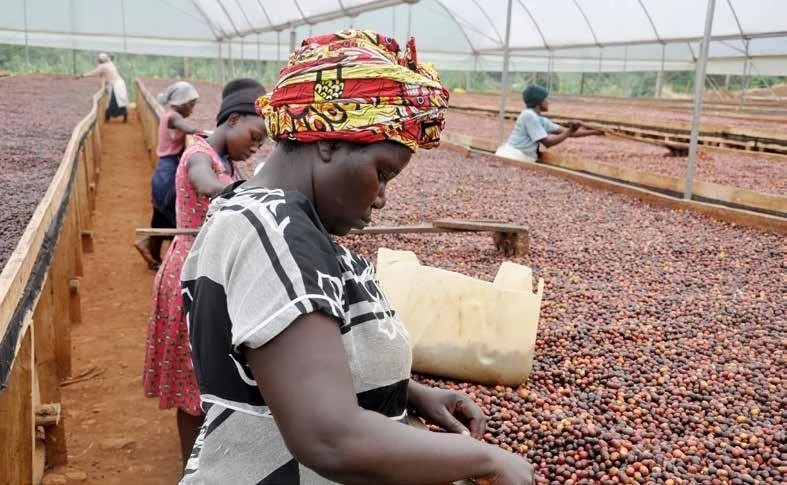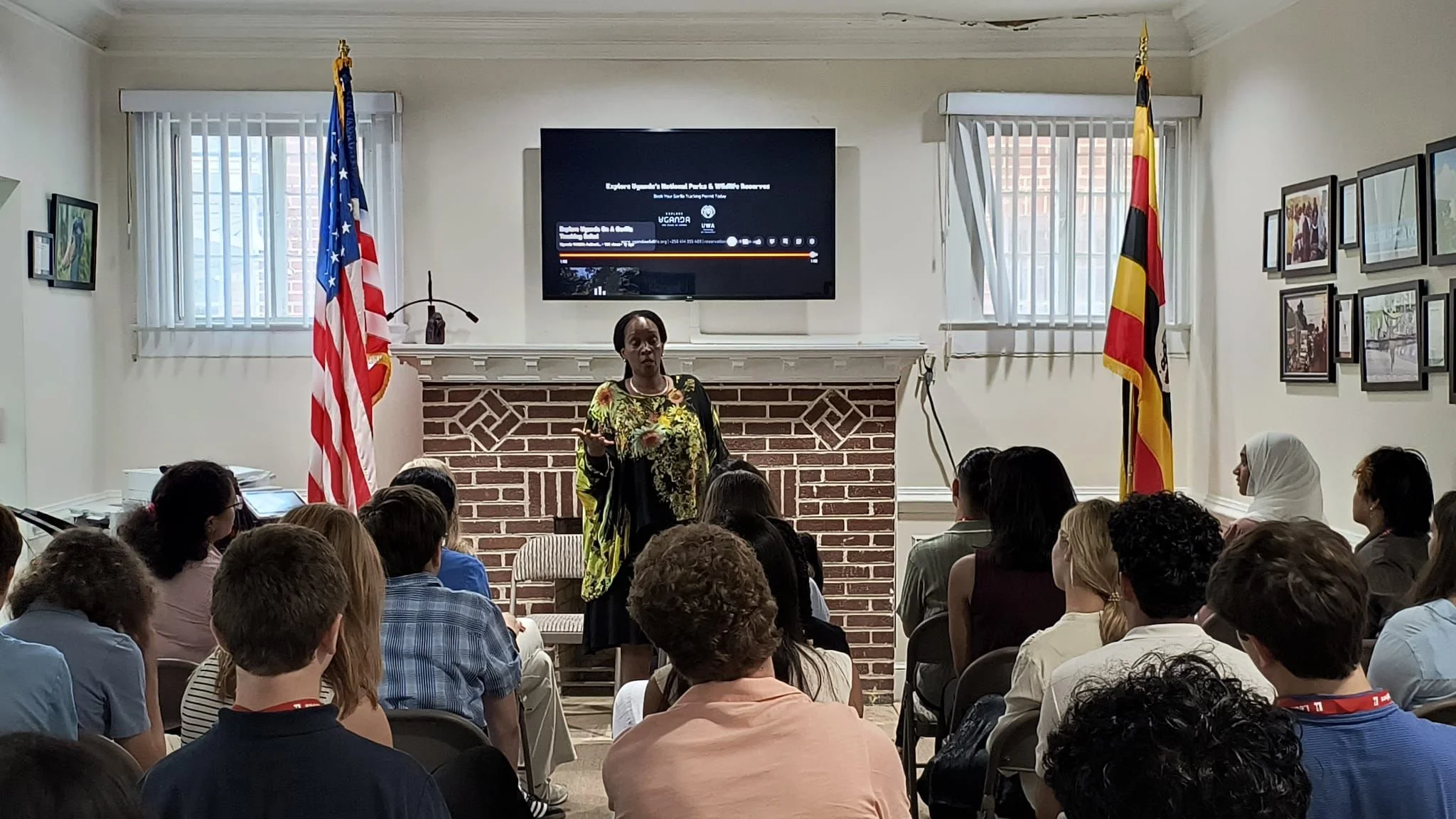Rethinking Investment in Africa: The Diaspora's Role in Fighting the Narrative
For too long, the global narrative around investment in Africa has been clouded by exaggerated perceptions of risk. From political instability to corruption, these stereotypes have stymied progress and discouraged the flow of capital needed to unlock the continent’s vast potential.
Diaspora members must recognize the unique position they hold in reshaping this narrative. As both witnesses to Africa’s challenges and stewards of its untapped opportunities. The time has come to take action—not only to challenge these myths but also to actively drive investment and development across the continent.
Do not accept the narrative
As a diaspora, we are both witness to who suffers most from this rhetoric and have the power to change it.
How much of this narrative do we allow to persist through inaction?
The Myth of Risk
Investment risk, as applied to Africa, is often a flawed and oversimplified concept. Gagan Gupta, a leader in African logistics and utilities, recently highlighted the problem, stating, “The concept of risk is completely invented to ensure that investment doesn’t come to Africa.” This assertion strikes at the heart of an issue many of us in the diaspora have experienced firsthand: Africa is judged by a different, and often unfair, standard.
Concerns about corruption, governance, and infrastructure gaps are not unique to Africa. Yet, they are disproportionately emphasized when compared to similar issues in other regions. Most of the business development managers and entrepreneurs spend huge amounts of my time dispelling risk perceptions.
This emerging dynamic of Baltic and Asia investments underscores a growing recognition of Africa's potential, which has been historically overlooked by Western powers that often cling to outdated and misguided notions. These stereotypes hinder a genuine understanding of the continent's opportunities and complexities. Moreover, the shift in engagement from China and Russia signifies a possible realignment in international relations, emphasizing the critical need for Western nations to reassess their approach and address longstanding biases in order to remain relevant in Africa's evolving landscape.
Africa’s Reality: A Land of Opportunity
Africa is not a continent of unmitigated risk—it is a continent of untapped potential. Home to six of the world’s ten fastest-growing economies, Africa is a hub for innovation in fintech, renewable energy, agribusiness, and more. The African Continental Free Trade Area (AfCFTA) promises to create the largest free trade zone in the world, unlocking opportunities for intra-African and global commerce.
Moreover, the youthful and entrepreneurial spirit of Africa’s population is unparalleled. From tech hubs in Nairobi to creative industries in Lagos, Africa’s future is being built by bold innovators ready to redefine their nations. Yet, these entrepreneurs often lack the capital and support systems needed to thrive.
This is where the diaspora must step in.
The Diaspora Advantage
We, the diaspora, have a dual perspective: we understand the realities of Africa while also navigating the systems and structures of the global economy. This unique position allows us to play a pivotal role in changing the investment narrative. By leveraging our networks, resources, and skills, we can directly address the barriers that discourage foreign investors and build sustainable businesses on the continent.
Uganda's mission in China created the Uganda Coffee Day on March 17th, aiming to promote the unique qualities of Ugandan coffee.
This significant event will showcase the country’s rich coffee heritage, connect local farmers with international markets, and foster trade relationships to elevate Uganda's profile in the global coffee industry.
1. Investing Beyond Aid
It’s time to move beyond the aid-driven narrative that has dominated Africa’s relationship with the world. The diaspora must lead by example, prioritizing investments over donations. Whether through diaspora bonds, real estate projects, or venture capital, we can create a ripple effect that demonstrates Africa’s viability as an investment destination.
2. Building Trust and Transparency
Corruption is often cited as a deterrent for investment in Africa, but as Aubrey Hruby aptly notes, it exists everywhere. Instead of allowing this narrative to persist, we must create and champion systems of transparency and accountability. Diaspora-led ventures can model best practices, setting a standard for ethical and efficient business operations.
3. Telling Africa’s Story
The stories told about Africa matter. As members of the diaspora, we must amplify narratives of innovation, resilience, and success. This includes supporting African entrepreneurs, showcasing success stories, and leveraging our platforms to challenge outdated stereotypes.
4. Fostering Partnerships
Collaboration is key. By partnering with local governments, entrepreneurs, and communities, the diaspora can bridge the gap between Africa and the global economy. Initiatives like the Tukole Business Network exemplify how diaspora-led efforts can foster connections and unlock opportunities.
The Uganda Embassu in Washington DC and H.E. Robie Kakonge actively engage with American investors and businesspeople through informative sessions and in-person office visits.
By sharing insights on Uganda's economic landscape, investment opportunities, and business potential, the aim is to foster collaboration and strengthen ties between Uganda and the United States, enhancing mutual growth and understanding.
Actionable Steps for the Diaspora
Engage in Diaspora Investment Initiatives
Programs like diaspora bonds and equity funds provide direct pathways for investment. Research options in sectors like real estate, healthcare, tourism, and technology.Mentorship and Knowledge Transfer
Many African entrepreneurs lack access to the expertise needed to scale their businesses. Volunteer your time to mentor startups or offer pro bono consulting services.Advocate for Policy Change
Push for policies that make it easier for the diaspora to invest in Africa. This includes advocating for dual citizenship, tax incentives, and streamlined processes for business registration.Create Diaspora-Led Funds
Pool resources with other diaspora members to create funds that invest in high-growth sectors like technology, renewable energy, and agribusiness.Support Local Businesses
Whether through patronage, partnerships, or promotion, diaspora members can play a critical role in elevating African businesses on the global stage.
Conclusion: The Time Is Now
The narrative of Africa as a high-risk investment destination is not just inaccurate—it is harmful. It denies the continent the capital and resources it needs to thrive, and it perpetuates a cycle of dependency and underdevelopment. As members of the diaspora, we have the power—and the responsibility—to change this.
Let us not wait for others to see Africa’s potential. Instead, let us lead the way by investing, mentoring, and championing the continent’s growth. By doing so, we can not only dispel the myths surrounding risk but also create a legacy of transformation for generations to come.




